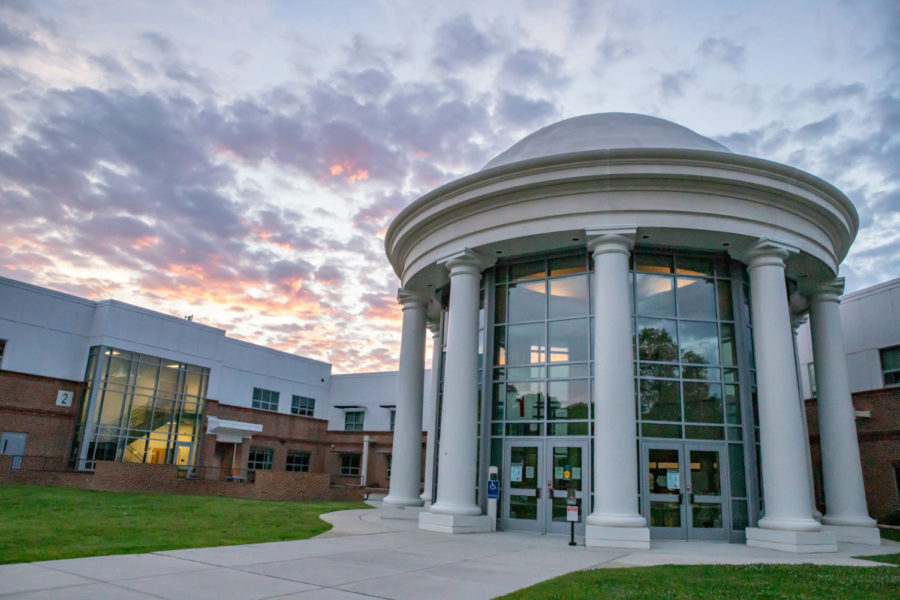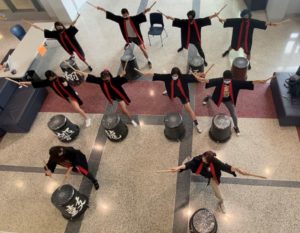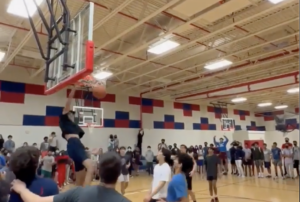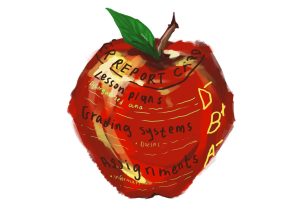A freshman survival guide
Thomas Jefferson High School for Science and Technology (Jefferson) is known as the top public high school in the United States, but it can be difficult for rising freshmen to find their balance within the first few months of school. Here are ten tips to surviving freshman year at Jefferson.
June 10, 2022
1. Take advice with a grain of salt
Throughout your time at Jefferson, you will find many people willing to lend you a helping hand, tell you what courses to take, and what to do or not to do. Take everything anyone tells you with a grain of salt (including this list). Not everything works for everyone, and no one knows you better than yourself.
2. Sleep enough and eat breakfast
If there’s anything you will hear over and over in the beginning of freshman year, it will be to sleep. And that advice is there for good reason. Sleep is necessary to function properly during the day, and there is no point sleeping at midnight if you’re too tired to focus on the test you stayed up studying for. Eating breakfast is also incredibly important to stay alert during the day. Overall, maintain your health and don’t let it fall second to studying. Long term, you won’t end up burning out half way through the year like everyone else, which will help your grade so much more than an extra hour of studying ever will.
3. Study habits
All that being said, develop good study habits as soon as possible. You won’t have much time after school to get homework done or study for tests, so procrastinating will get you absolutely nowhere. Figure out what helps you learn the material best, whether that be flashcards, reviewing notes, or writing study guides. With the later dismissal time as well as bus commute, you will have significantly less time to get work done than middle school with significantly more work to get done. Figure out what works for you as soon as possible, and you will be so much better off for it.
4. Pick electives for freshman year wisely
Something a lot of students don’t know going into freshman year is that by graduation, everyone needs to take a Computer Science (CS) course and one history elective of your own accord. The history course is needed because it is replaced with Design and Technology during freshman year, and CS is a Jefferson requirement. Keep these courses in mind when choosing electives. If you want to get them over with this year, many students elect to take Introduction to CS and Ancient Civilizations in freshman year which both account for the credits. There are also many other interesting humanities courses available after freshman year. No matter what you do, just make sure you have a plan for when you are going to take them.
5. Friends
No one here knows anyone else, and even if they do, chances are they don’t know them very well. Get out of your comfort zone in the first few weeks of school and actually talk to people. Every freshman is just as nervous as you are, and if they aren’t a freshman they will almost certainly be willing to help. Also, try to have at least one person in each of your classes you know you can message for help during a project or assignment emergency or if you are absent for a day. Teenagers don’t bite. Go talk to them.
6. Take time off when you’re stressed
No matter how well you manage your time or take breaks while studying, a burn out is inevitable. Learn to notice when they’re about to come and find ways to take a break and refuel. If absolutely necessary, especially towards the end of the semester or quarter, take a day off to refuel and reset. Having to play catch up for one day is significantly easier than burning out and falling behind on weeks worth of material and work.
7. Student advocacy
Something else you will hear many people tell you this year is to use student advocacy. Get out of your comfort zone and talk to your teachers. More often than not, they want to help you out. If you’re shy or don’t feel comfortable, find a way to contact them that works for you, for example, email, but remember that face to face conversation will always trump all else. Teachers genuinely all want to help you. However, do not take advantage of student advocacy. Your procrastinating or bad planning is not their emergency, and do not expect your teachers to drop everything just to help you out because you procrastinated on a month-long project. That being said, emergencies happen, and the best way to get through them is to make sure you communicate with your teachers.
8. 8th periods
Take 8th periods you actually enjoy. During 8th period every red day, students have clubs they can elect to attend, similar to after-school clubs at middle school. Some decide to go to study halls and study, some pick random ones every week, some choose things they enjoy and dedicate time. Be the latter. If you need to spend time studying, definitely sign up for 8th periods, and it isn’t necessary to know your schedule within the first week. However, do try your best to find things to dedicate your time to that you plan on sticking with for the rest of high school. It will help you get involved with the school, make friends, and have something to look forward to besides tests and studying every day.
9. Things to know:
Lunch happens at the same time for every grade, and you can sit anywhere you want in the school. You have ten minutes for transitions between classes. Get Facebook if you want to stay in the loop with school-wide events or dances. There are no bells, but there is still a schedule; teachers dismiss you based on time. And lastly, there are no lockers. You can leave your stuff in cubbies outside your class, and most students bring their bags from class to class.
10. Research Statistics (RS) is not the end of the world
And lastly, if you’re still here, you’re likely already attending freshman year at Jefferson. Just know that RS is not the end of the world. It seems hard because you’re adapting your study habits and learning how to take the tests in the same way you learn how to take multiple choice tests. It is one of the easiest math classes at Jefferson, but the only way to succeed in the class is to pace yourself with the packets and not procrastinate the homework assignments in class. You have enough time to get them done.










